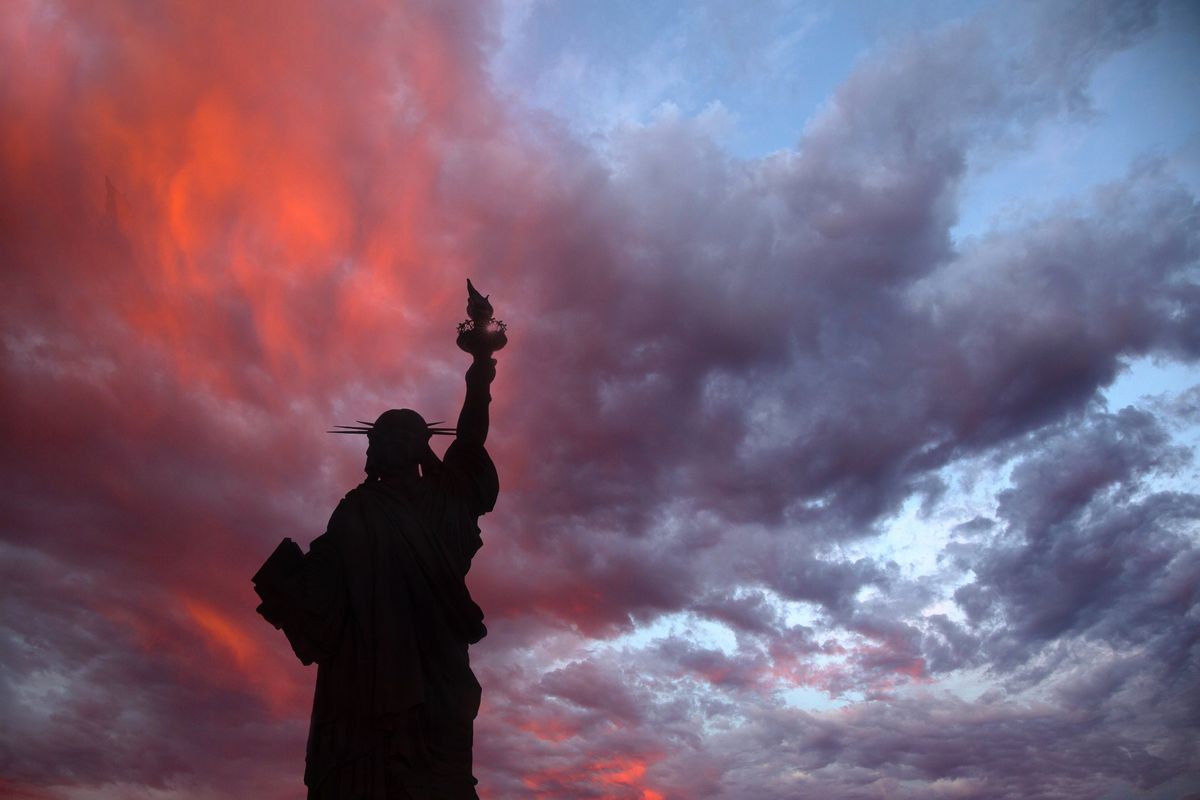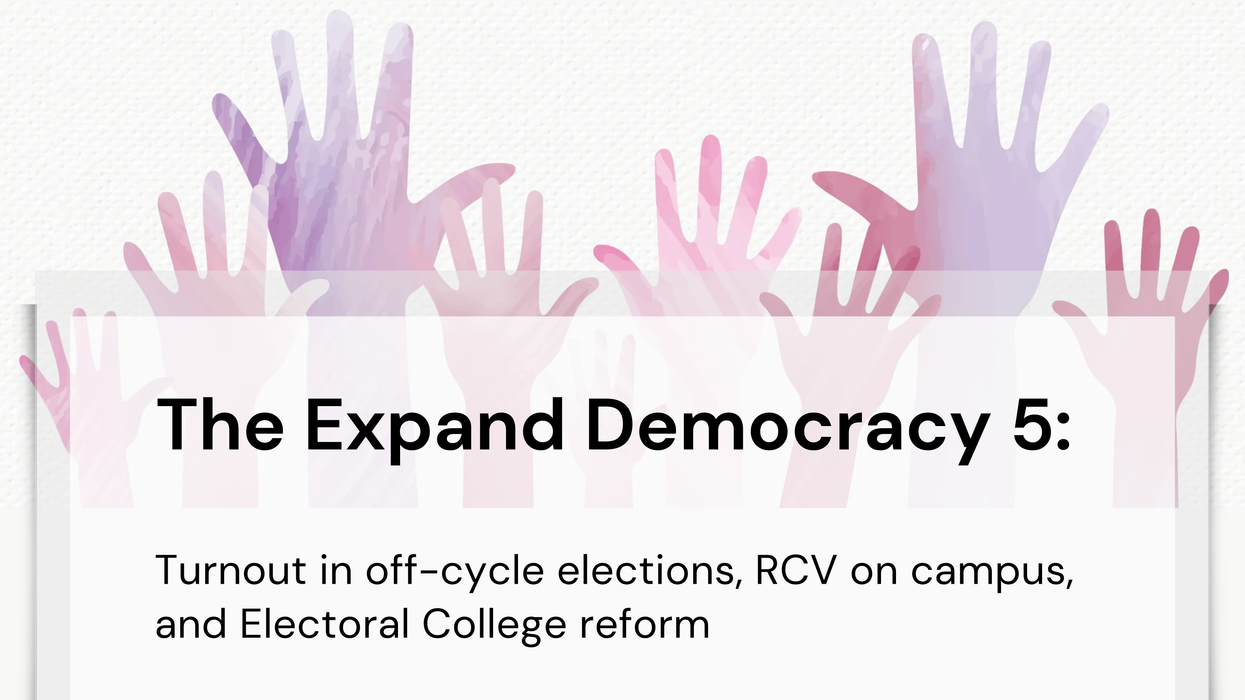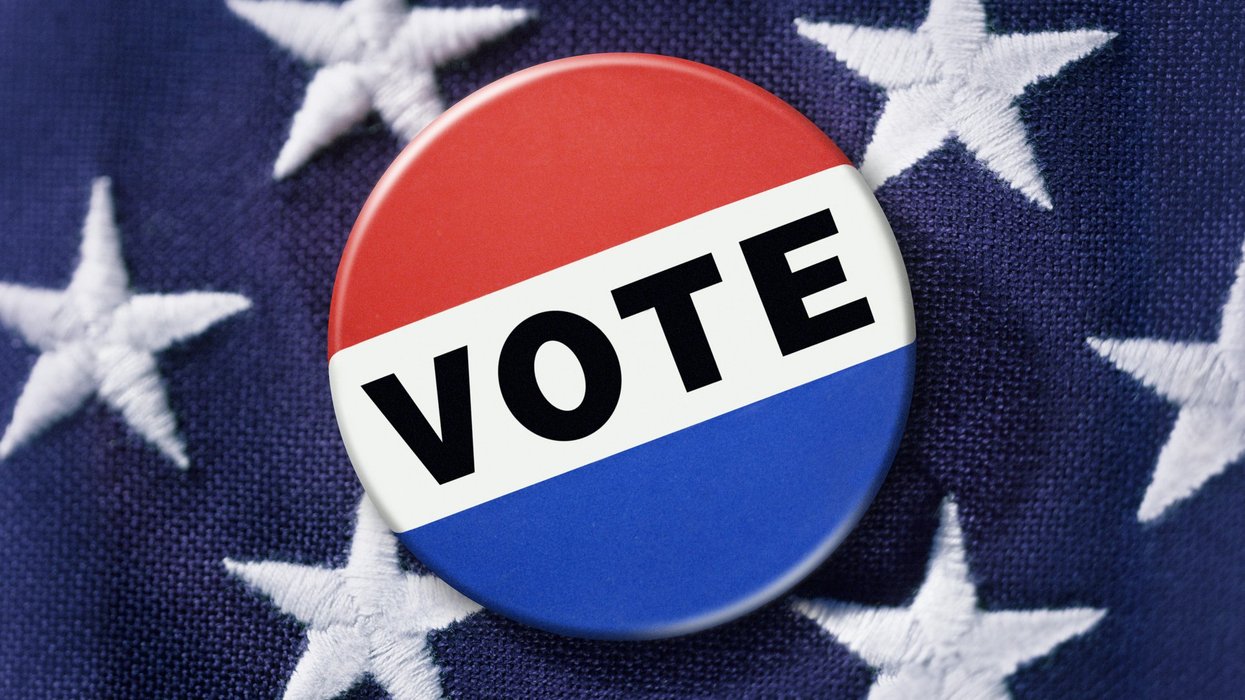Originally published by The 19th.
The Justice Department announced Thursday that it has filed a lawsuit against Texas over its six-week abortion ban that went into effect last week. The Biden administration has faced pressure to take action after the U.S. Supreme Court refused to block the new law that has become the most restrictive in the country.
The DOJ lawsuit will test the federal government's ability to challenge Texas' unique legislation, which empowers private parties to sue anyone who “aids or abets" a person in obtaining an abortion in the state after six weeks of pregnancy. That key provision significantly differs from attempted abortion restrictions in other states, which rely on criminal enforcement, and may complicate federal attempts to intervene, experts say.
In a news conference, Attorney General Merrick Garland said his department is seeking a “permanent and preliminary injunction" prohibiting the law from being enforced.
“The act is clearly unconstitutional under long-standing Supreme Court precedent," Garland said. “The obvious and expressly acknowledged intention of this statutory scheme is to prevent women from exercising their constitutional rights by thwarting judicial review for as long as possible."
The department's complaint argues that the Texas restriction violates the Fourteenth Amendment right for a person to choose whether or not to have an abortion.
Sign up for The Fulcrum newsletter
“S.B. 8 implicates this doctrine by expressly authorizing—indeed, empowering—individuals to engage in conduct that violates the constitutional rights of women throughout Texas, in a manner in which the State itself would not be able to engage," the lawsuit states.
The lawsuit also asserts that the law violates the Constitution's Supremacy Clause, which says the federal constitution takes precedence over state laws.
“There are all kinds of federal agencies who have federal contractors or federal employees operating in Texas, and some of the things they do would put them at risk of being sued by individuals in Texas under S.B. 8," said Sara Ainsworth, senior legal and policy director at If/When/How: Lawyering for Reproductive Justice. The federal Office of Refugee Resettlement, for example, can help facilitate reproductive health care, including abortions for unaccompanied minors. S.B. 8 would also interfere with the Defense Department's legal authority to provide abortions to people who are eligible because they either would be endangered by carrying a fetus to term or became pregnant due to rape or incest, the lawsuit says.
Abortion rights organizations praised the move. “We are heartened to see the Biden administration stepping in to take action to vindicate Texans' rights," Helene Krasnoff, vice president of public policy litigation and law for the Planned Parenthood Federation of America, said in a statement.
- “It's a gamechanger that the Department of Justice has joined the legal battle to restore constitutionally protected abortion access in Texas and disarm vigilantes looking to collect their bounties," Nancy Northup, president and CEO of the Center for Reproductive Rights, said in a statement.
Last week President Joe Biden promised that his administration would explore a “whole-of-government" response to the Texas law. He condemned the restrictions, stating that the aid and abet clause “unleashes unconstitutional chaos and empowers self-anointed enforcers to have devastating impacts."
Congressional Democrats are vowing to pass federal legislation to establish abortion access nationally. This includes a proposed bill known as the Women's Health Protection Act, which would create a statutory right to abortion care, effectively voiding restrictive state laws like Texas'.
“Every woman, everywhere has the constitutional right to basic health care," House Speaker Nancy Pelosi wrote in a statement following the Supreme Court's ruling. “S.B. 8 is the most extreme, dangerous abortion ban in half a century, and its purpose is to destroy Roe v. Wade, and even refuses to make exceptions for cases of rape and incest. This ban necessitates codifying Roe v. Wade." But abortion rights legislation would face obstacles in the evenly divided Senate, where it would need 60 votes to pass.
On Tuesday, Democrats on the House Judiciary Committee called for Garland to “use the full power of the Department of Justice to defend a woman's constitutional right to choose an abortion," including criminal prosecution against individuals who attempt to enforce Texas' law.
Ainsworth said the DOJ's lawsuit could lead to a different interpretation from the Supreme Court's majority opinion, which essentially argued that the court could not block Texas' law largely because it is individuals, not officials, who are in charge of enforcement.
An important distinction between the cases, Ainsworth said, is that the DOJ lawsuit holds Texas responsible for enabling individuals to sue. Part of the department's argument, she said, is this: “You may say that you farmed this out to private people to enforce and therefore you are free from any lawsuit against it, but you are wrong."
Those who successfully sue someone over an abortion would be awarded at least $10,000 and have their legal fees reimbursed. Lawsuits on the constitutionality of the six-week ban are pending.
Since the law took effect on September 1, clinics in the state have stopped scheduling abortion-related visits for people who are more than six weeks pregnant. A number of clinics in surrounding states have abortion appointments booked through mid-October, said Kamyon Conner, executive director of the Texas Equal Access Fund. Many people do not understand the specifics of the legislation, leaving them uncertain about what circumstances they can face legal action, Conner added.
Texas state Sen. Bryan Hughes, one of the bill's lead authors, told The 19th last week that he has had conversations with other state lawmakers interested in writing similar legislation. In his news conference, Garland said any similar actions from other states will be met with federal action as well.
As the court battle over Texas plays out, abortion rights advocates are also looking ahead to another case that will allow the Supreme Court to determine whether Mississippi will be allowed to enforce an abortion ban after 15 weeks of pregnancy. That restriction, like others around the country, has been on hold while it's being considered by the courts, and the decision could have wide-ranging effects.





















